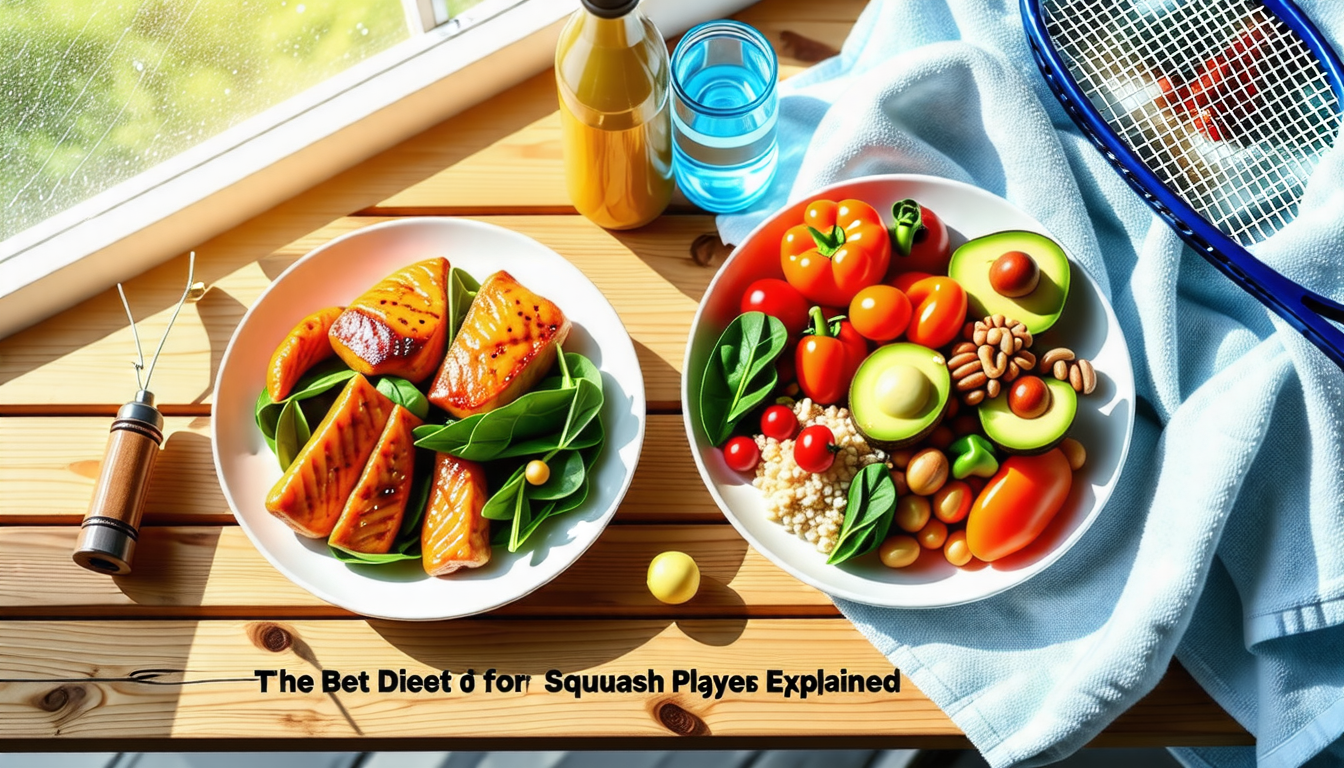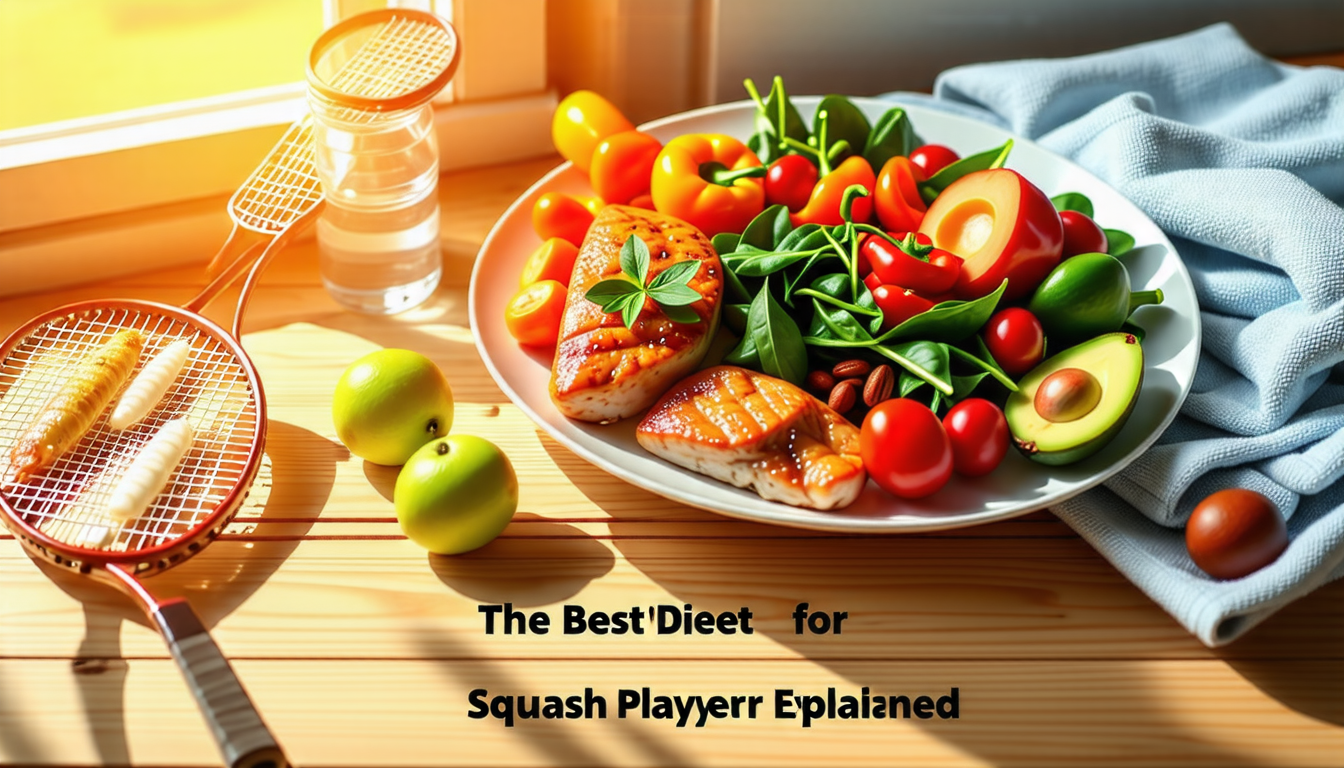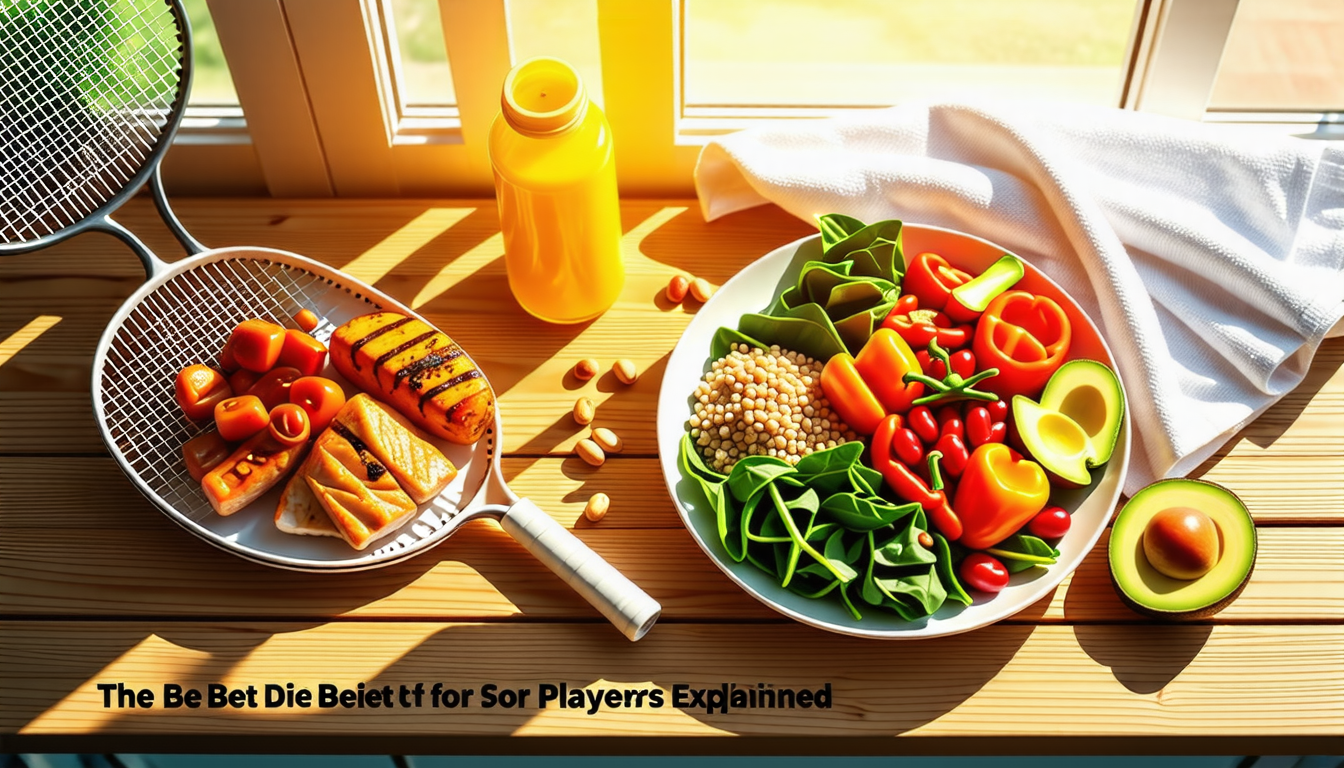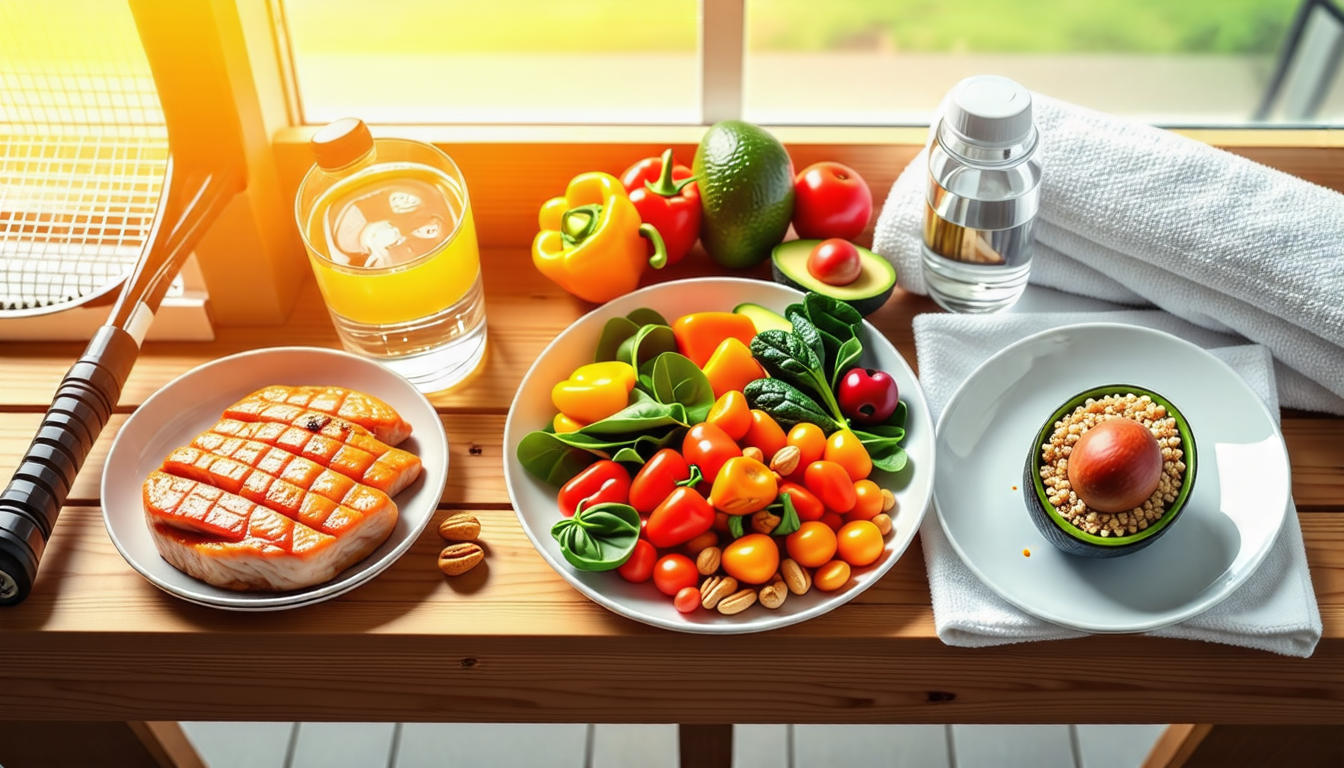|
IN BRIEF
|
For squash players, optimal performance on the court is not solely determined by skill and technique; nutrition plays a crucial role in achieving and maintaining peak athletic abilities. Every squash player, from beginners to seasoned pros, must understand the importance of fueling their bodies with the right types of food. The right diet can significantly impact energy levels, endurance, and recovery, ultimately leading to enhanced performance during matches. A well-rounded, efficient diet should consist of whole grains, lean proteins, and a rainbow of fruits and vegetables to ensure athletes receive the essential nutrients needed for intense training sessions. Choosing the best foods tailored to the demands of the sport can make all the difference in a player’s journey to greatness. Discover how to optimize your diet and elevate your game!

Squash is an intense, high-intensity sport that requires players to maintain peak physical performance throughout their matches. Nutrition plays a vital role in achieving this level of athleticism. Understanding the optimal dietary choices can significantly influence a player’s success on the court.
Influencing Factors: Individualization of Diet Plans
There is no one-size-fits-all approach to nutrition. Each squash player has unique needs based on their training regimen, body composition goals, and personal preferences. Therefore, it is essential to tailor dietary approaches to suit individual requirements. Factors such as age, gender, and training volume can greatly influence nutritional strategies. For instance, players with higher training volumes may require additional caloric intake to support performance.
The right diet is a crucial aspect of achieving success on the squash court. By fueling the body with appropriate foods, optimizing nutrient timing, staying hydrated, and understanding personal nutritional needs, squash players can enhance their performance capabilities. Engaging with a sports nutrition expert can provide valuable guidance in developing an effective nutrition plan tailored to individual goals and lifestyle choices.
Energy Needs of Squash Players
As squash is a physically demanding sport, players need to be cognizant of their energy requirements. Elite squash players often engage in intensive training, which increases their caloric needs. Hence, a diet rich in high-quality carbohydrates, proteins, and healthy fats is necessary to support energy expenditure and to enhance performance during prolonged sessions on the court.

Squash players require a carefully curated diet to optimize their performance on the court. The intense nature of the sport demands high levels of energy, making nutrition an essential factor. A balanced mix of carbohydrates, proteins, and fats is vital. It is recommended that athletes consume around 60-70% of their daily calories from carbohydrates to maintain energy levels. Foods such as sweet potatoes, rice, and starchy vegetables are excellent choices before playing. Meanwhile, fruits and legumes serve as great post-match recovery options.
Moreover, the timing of meals plays a crucial role in maximizing energy and recovery. Consuming a pre-game meal rich in carbohydrates and low in fat about 3-4 hours before a match can enhance performance and digestion. After the game, replenishing with proteins and carbohydrates within 30 minutes can speed up recovery, allowing players to get back to training sooner.
Interestingly, elite squash players often emphasize the importance of variety in their diets. Incorporating a rainbow of plant-based foods, like tomatoes and cranberries, can not only make meals vibrant but also ensure a range of essential nutrients is consumed. For further details on nutrition tailored specifically for squash players, Serious Squash provides valuable insights.

For squash players, a well-structured diet is crucial for enhancing performance on the court. The ideal nutrition plan should include a diverse range of plant-based foods, incorporating colorful fruits and vegetables, such as red tomatoes and watermelon. These foods provide essential carbohydrates for energy, particularly before and after training. Options like sweet potatoes, rice, and legumes are excellent choices for replenishing energy reserves. Moreover, an effective strategy includes consuming meals low in fat and moderate in fiber to optimize d digestion. Each meal should be designed to support peak athletic performance, ensuring that athletes can train hard, recover well, and continuously excel in their performance.
What are the best foods for squash players?
R: The best foods for squash players include a variety of plant-based foods that represent the colors of the rainbow. Incorporate red items such as tomatoes, watermelon, pink grapefruit, and cranberries to enhance your diet.
What should I eat before a squash match for optimal performance?
R: Before a squash match, focus on consuming carbohydrate-rich foods that are low in fat and moderate in fiber. Great options include sweet potatoes, rice, fruits, and starchy vegetables to ensure you have sufficient energy levels during the game.
How important is nutrition for squash players?
R: Nutrition is crucial for squash players as it directly impacts strength, endurance, and overall performance. The right food choices provide the energy needed to perform at high levels and enhance training outcomes.
What should I eat after playing squash to recover?
R: After a squash match, it’s important to replenish your energy reserves. Opt for a meal that includes carbohydrates and protein, such as legumes (like beans and lentils) or other high-carb foods, to facilitate recovery and muscle repair.
Can intermittent fasting benefit squash players?
R: Some players find that intermittent fasting, such as eating one meal a day, can enhance their performance, especially if they play squash on an empty stomach. However, individual responses vary, and it’s essential to ensure that nutritional needs are met within the eating window.

